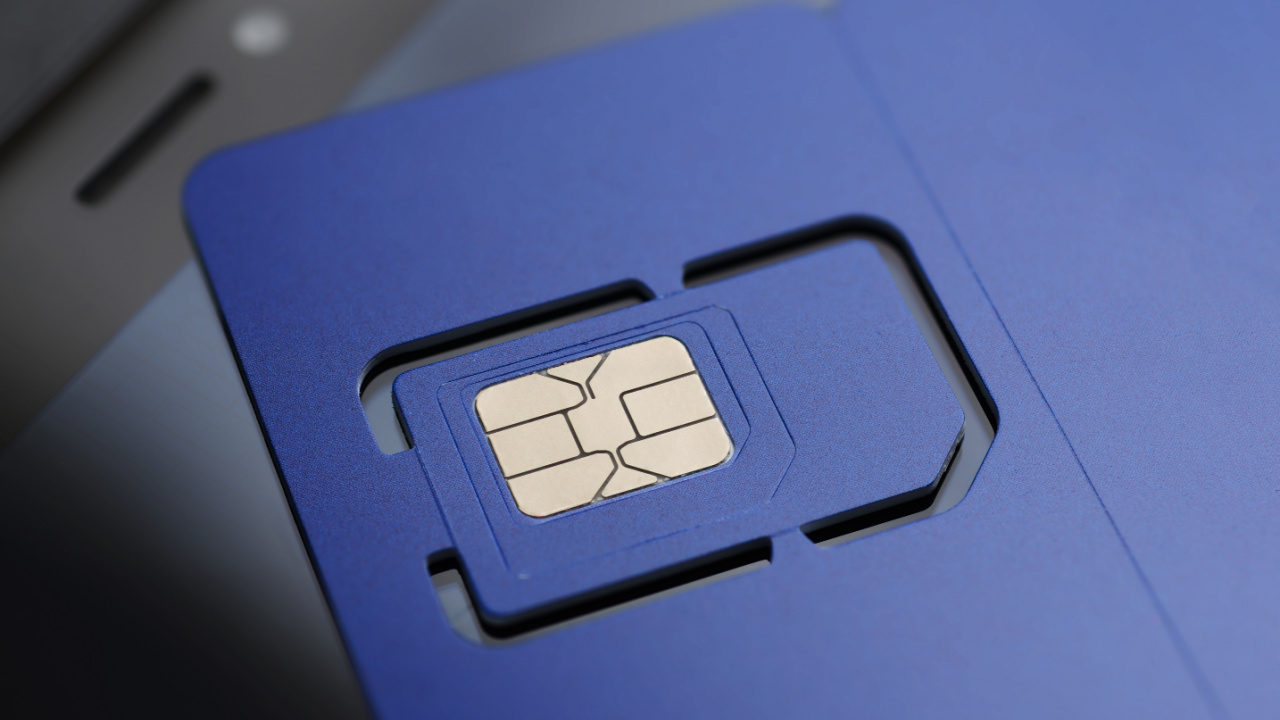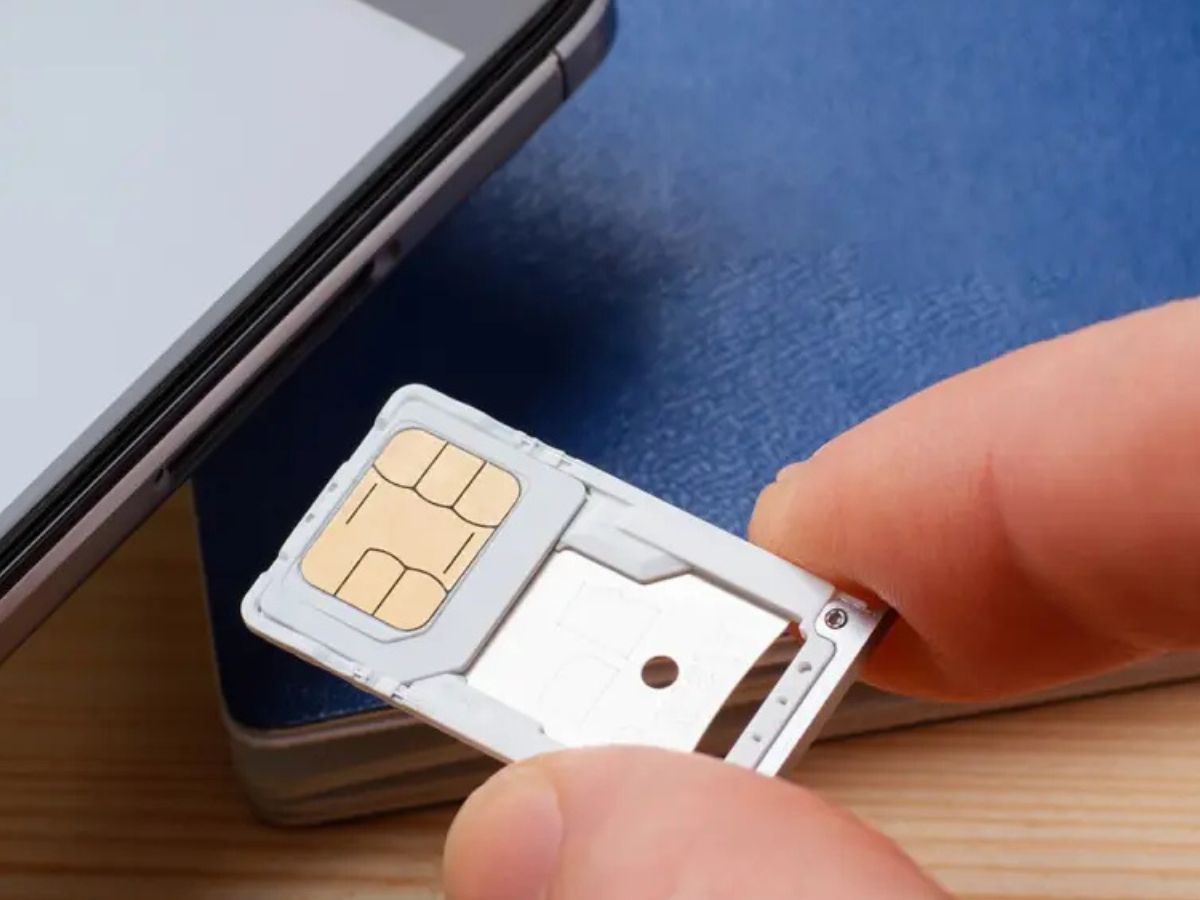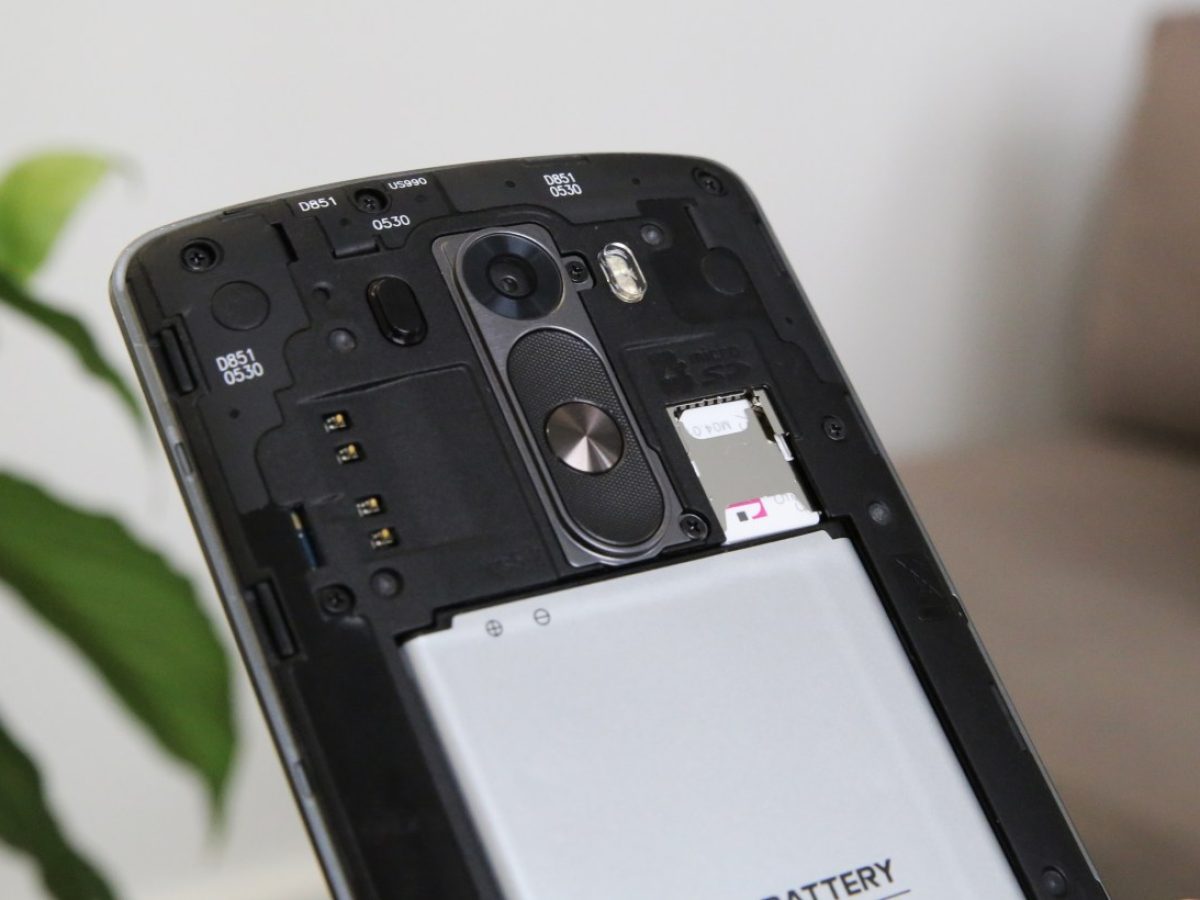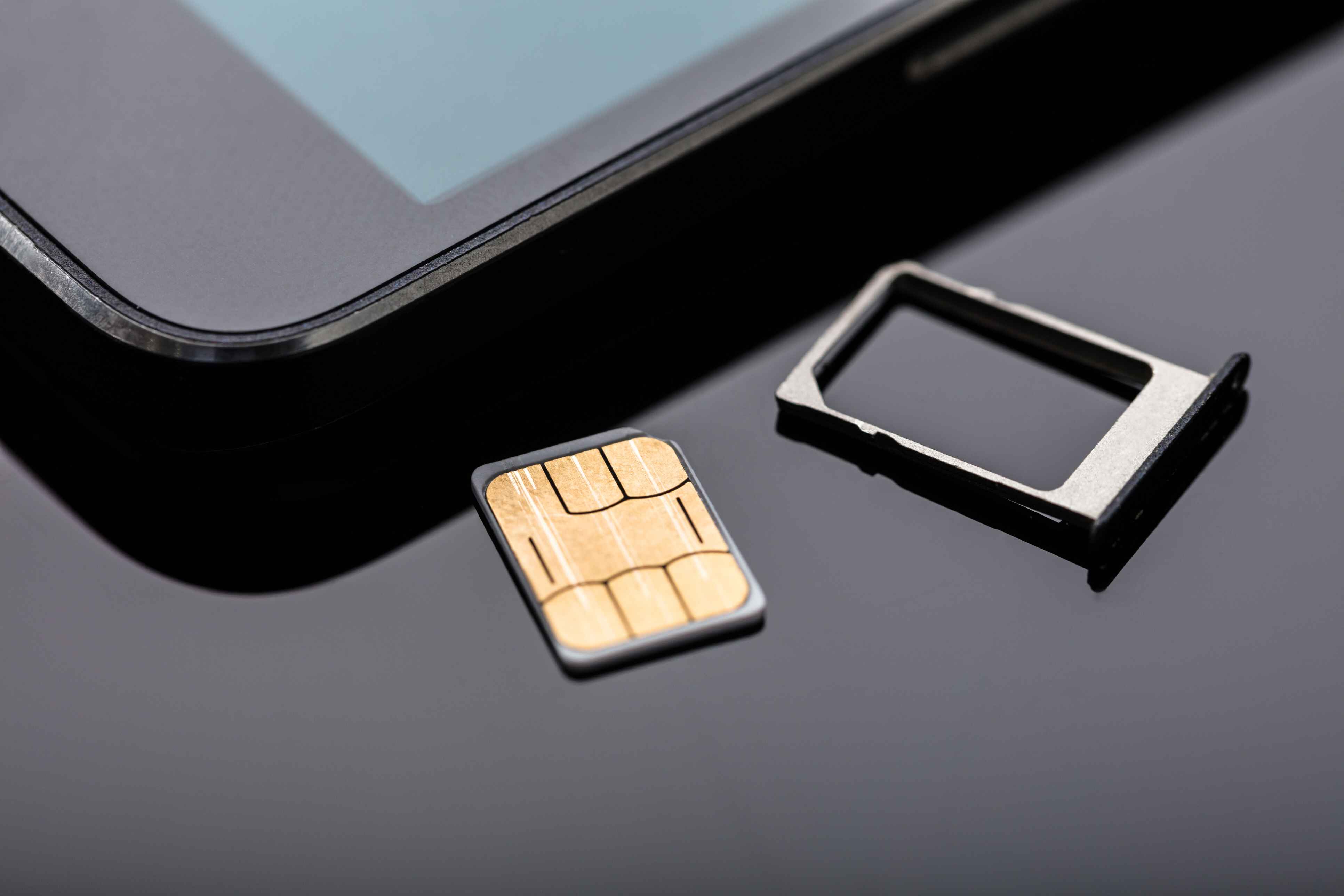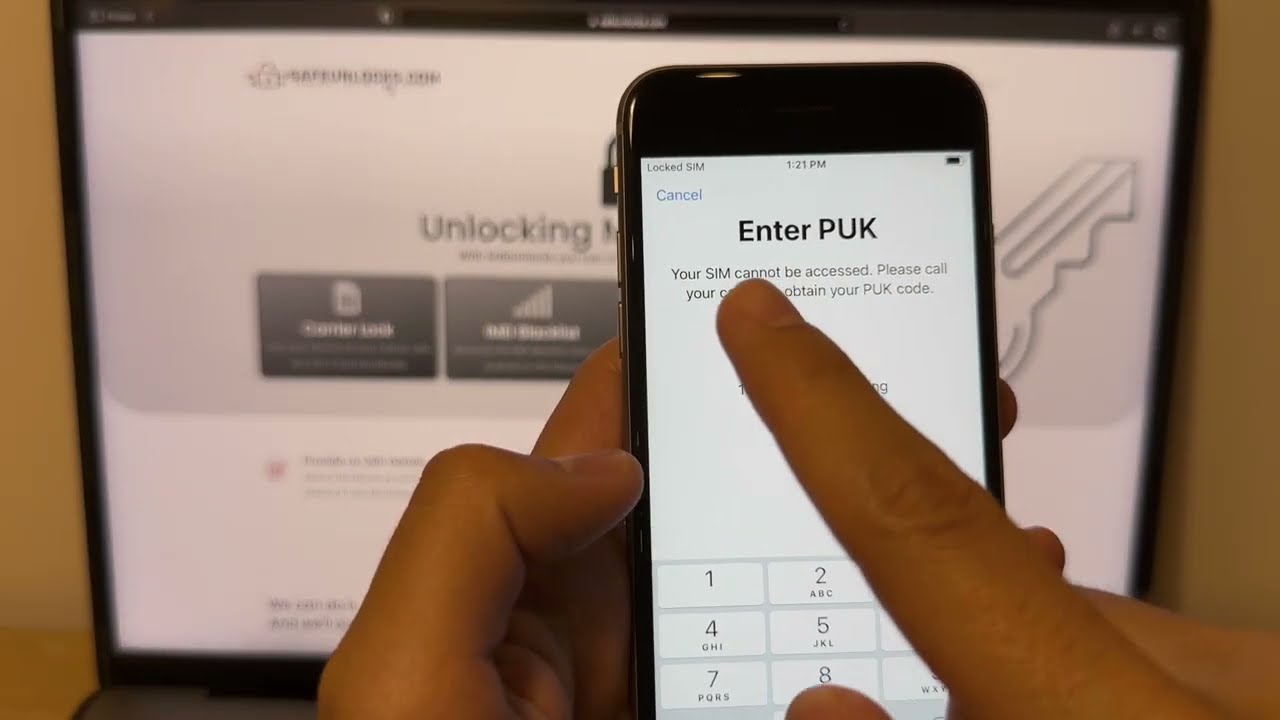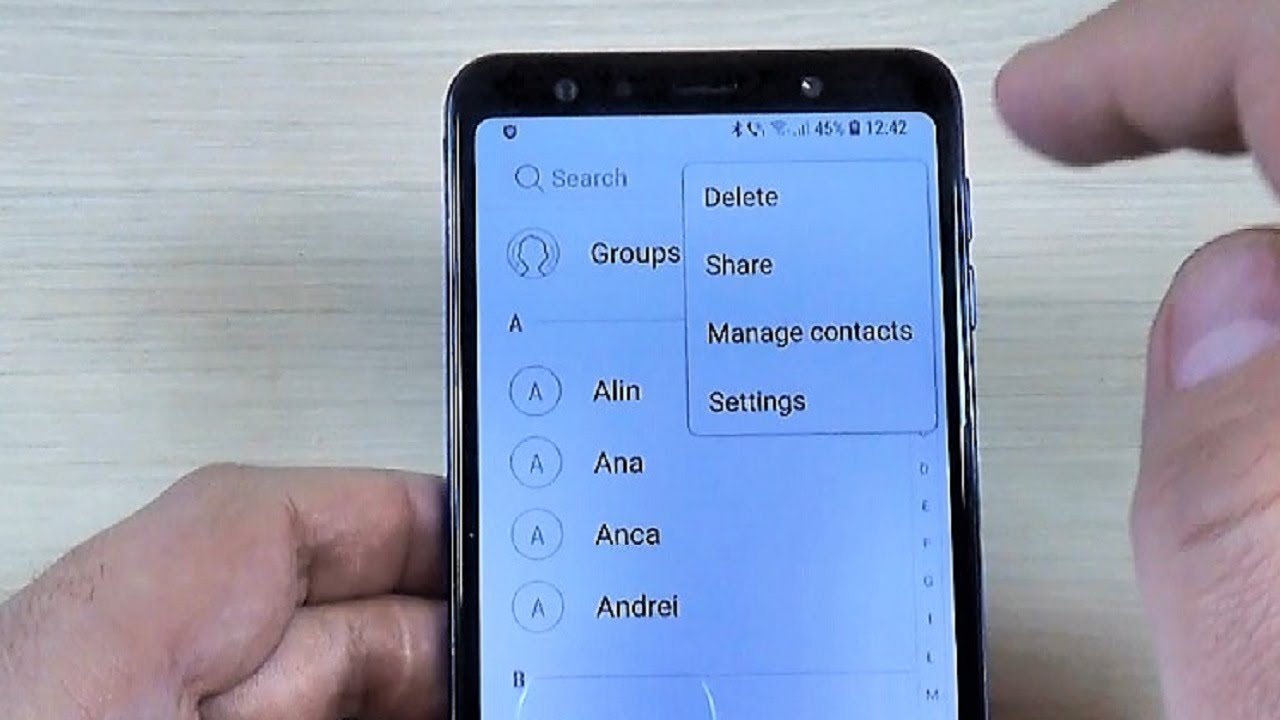Introduction
In the fast-paced digital age, mobile devices have become an indispensable part of our daily lives. From staying connected with loved ones to managing professional responsibilities, the reliance on smartphones and other mobile devices is undeniable. However, amidst the convenience and efficiency that these devices offer, it is crucial to acknowledge the significance of SIM card security.
The Subscriber Identity Module (SIM) card, a small but powerful component within mobile devices, plays a pivotal role in connecting users to their respective mobile networks. It stores crucial data, including the user's identity, contact information, and in some cases, payment details for mobile services. Given its central role, ensuring the security of the SIM card is paramount in safeguarding sensitive personal and professional information.
As technology continues to advance, the potential vulnerabilities associated with SIM card security have also evolved. Cyber threats, such as SIM swapping, identity theft, and unauthorized access to sensitive data, pose substantial risks to individuals and businesses alike. Therefore, understanding the intricacies of SIM card security and implementing best practices is essential to mitigate these risks effectively.
Throughout this comprehensive guide, we will delve into the nuances of SIM card security, explore the potential risks and threats, and provide actionable insights on best practices for enhancing SIM card security. Furthermore, we will highlight the importance of robust SIM card security measures for businesses, emphasizing the critical role they play in protecting sensitive corporate information and maintaining operational integrity.
As we navigate through this guide, it is imperative to recognize the evolving landscape of mobile device security and the imperative need for proactive measures to safeguard our digital identities. By equipping ourselves with a deeper understanding of SIM card security and embracing best practices, we can fortify our defenses against potential threats and enjoy the full benefits of mobile connectivity with peace of mind.
Understanding SIM Card Security
SIM card security encompasses the measures and protocols designed to protect the integrity and confidentiality of the data stored within a mobile device's Subscriber Identity Module (SIM) card. The SIM card serves as a crucial component in establishing a secure connection between the device and the mobile network, enabling users to make calls, send messages, and access mobile data services. Understanding the intricacies of SIM card security is essential in comprehending the potential vulnerabilities and implementing effective protective measures.
The SIM card contains sensitive information, including the user's unique identifier, authentication keys, and network-related data. To ensure the security of this information, SIM cards are equipped with encryption mechanisms and authentication protocols to safeguard against unauthorized access and tampering. Additionally, SIM cards are designed to authenticate the user's identity when connecting to the mobile network, thereby preventing unauthorized usage and protecting against identity theft.
One of the fundamental aspects of SIM card security is the implementation of strong authentication and encryption mechanisms. This involves the use of robust cryptographic algorithms to secure the communication between the SIM card and the mobile network, thereby preventing eavesdropping and unauthorized interception of data. Furthermore, SIM cards are equipped with secure storage for sensitive information, ensuring that user data remains protected even in the event of physical tampering or unauthorized access attempts.
As technology continues to advance, new security features and protocols are being introduced to enhance SIM card security. For instance, the evolution of embedded SIM (eSIM) technology has introduced new possibilities for secure provisioning and management of mobile subscriptions. eSIMs offer enhanced security features, such as remote provisioning and over-the-air updates, while minimizing the risk of physical tampering associated with traditional SIM cards.
Understanding the significance of SIM card security also involves recognizing the potential threats and vulnerabilities that may compromise the integrity of the SIM card and the data it stores. From SIM swapping attacks to malware targeting SIM card authentication mechanisms, staying informed about emerging threats is crucial in proactively addressing security risks and implementing preventive measures.
In essence, understanding SIM card security entails grasping the multifaceted layers of protection, encryption, and authentication that safeguard the integrity of the SIM card and the data it holds. By gaining a deeper comprehension of SIM card security, individuals and businesses can make informed decisions regarding the adoption of security measures and best practices to fortify their mobile devices against potential threats and vulnerabilities.
Risks and Threats
The landscape of SIM card security is not devoid of risks and threats, as the digital realm continues to witness the emergence of sophisticated cyber threats that target mobile devices and their associated components. Understanding the potential risks and threats is instrumental in fortifying the security posture of SIM cards and mitigating vulnerabilities effectively.
1. SIM Swapping Attacks
One of the most prevalent risks associated with SIM card security is the threat of SIM swapping attacks. In this type of attack, malicious actors attempt to fraudulently transfer a victim's phone number to a SIM card under their control. By doing so, they gain unauthorized access to the victim's calls, messages, and potentially sensitive information. This form of attack can lead to identity theft, unauthorized access to financial accounts, and the compromise of personal and professional communications.
2. Malware and Remote Exploitation
Mobile devices, including SIM cards, are susceptible to malware and remote exploitation, posing significant risks to the security of the data stored within the SIM card. Malicious software, when installed on a device, can compromise the SIM card's authentication mechanisms, potentially leading to unauthorized access and data exfiltration. Moreover, remote exploitation techniques targeting SIM cards can exploit vulnerabilities to gain unauthorized control, posing severe security risks.
3. Social Engineering and Phishing
Social engineering tactics and phishing attacks pose substantial threats to SIM card security. Cybercriminals may employ deceptive techniques to manipulate individuals into disclosing sensitive information, such as SIM card details and authentication credentials. By leveraging social engineering and phishing tactics, attackers can acquire the necessary information to carry out unauthorized SIM swaps or gain access to sensitive data stored within the SIM card.
4. Unauthorized Access to Network Infrastructure
The infrastructure supporting mobile networks is not immune to security breaches, and unauthorized access to network elements can have profound implications for SIM card security. If attackers gain unauthorized access to network components, they may exploit vulnerabilities to intercept communications, manipulate authentication processes, or compromise the integrity of SIM card-related data.
5. Insider Threats and Unauthorized Access
The potential for insider threats and unauthorized access within mobile network operators and service providers introduces additional risks to SIM card security. Employees with privileged access to network infrastructure or customer data may misuse their credentials to compromise SIM card security, leading to unauthorized SIM swaps, data breaches, or other malicious activities.
In light of these risks and threats, it is evident that robust security measures and proactive vigilance are essential to safeguard SIM cards against potential vulnerabilities and attacks. By acknowledging these risks and understanding their implications, individuals and businesses can take proactive steps to bolster SIM card security and minimize the associated threats effectively.
Best Practices for SIM Card Security
Implementing robust best practices for SIM card security is paramount in fortifying the integrity and confidentiality of the data stored within mobile devices' Subscriber Identity Module (SIM) cards. By adhering to proactive measures and security protocols, individuals and businesses can mitigate potential vulnerabilities and enhance the overall security posture of their mobile devices. Here are essential best practices for SIM card security:
-
Enable SIM Card Lock: Activating the SIM card lock feature adds an additional layer of protection by requiring a personal identification number (PIN) to access the SIM card's functionalities. This prevents unauthorized usage and safeguards against SIM card swapping attempts.
-
Change Default PIN: Upon acquiring a new SIM card, it is crucial to change the default PIN to a unique and secure code. By customizing the PIN, users can mitigate the risk of unauthorized access and enhance the overall security of the SIM card.
-
Regularly Update Device Software: Keeping mobile devices' software up to date is essential in addressing potential security vulnerabilities that may affect SIM card functionality. Regular software updates often include patches and security enhancements that fortify the device's overall security posture.
-
Avoid Public Wi-Fi for Sensitive Transactions: When conducting sensitive transactions or accessing confidential information, it is advisable to refrain from using public Wi-Fi networks. Public Wi-Fi connections may pose security risks, including potential eavesdropping and unauthorized access to SIM card-related data.
-
Enable Two-Factor Authentication (2FA): Leveraging two-factor authentication for accessing mobile services adds an extra layer of security, reducing the risk of unauthorized SIM card activities. By requiring an additional authentication factor, such as a one-time password or biometric verification, 2FA enhances the overall security of SIM card-related services.
-
Regularly Monitor Account Activity: Individuals should regularly monitor their mobile service accounts for any suspicious or unauthorized activities, such as unexpected SIM card changes or unusual call and data usage. Promptly reporting any irregularities to the service provider can help prevent potential security breaches.
-
Educate Employees on SIM Card Security: For businesses, educating employees on the importance of SIM card security and implementing best practices within the organization is crucial. This includes raising awareness about potential risks, providing training on security protocols, and establishing clear guidelines for safeguarding SIM cards and mobile devices.
By adhering to these best practices, individuals and businesses can significantly enhance SIM card security, mitigating potential risks and vulnerabilities effectively. Proactive measures, combined with ongoing vigilance and education, play a pivotal role in maintaining the integrity of SIM cards and safeguarding sensitive data against evolving security threats.
SIM Card Security for Businesses
Ensuring robust SIM card security is of paramount importance for businesses, given the significant implications for safeguarding sensitive corporate information and maintaining operational integrity. In the corporate landscape, mobile devices equipped with SIM cards serve as essential tools for communication, data access, and operational connectivity. However, the potential risks associated with SIM card security can pose substantial threats to business continuity and data confidentiality.
Businesses must prioritize SIM card security by implementing comprehensive measures tailored to their specific operational requirements. This involves deploying stringent security protocols, educating employees on best practices, and leveraging advanced technologies to fortify the integrity of SIM cards within corporate mobile devices.
Enterprise-Grade Security Protocols
Incorporating enterprise-grade security protocols is fundamental in fortifying SIM card security within business environments. This encompasses the implementation of robust encryption mechanisms, multi-factor authentication, and secure mobile device management solutions. By integrating advanced security measures, businesses can mitigate the risks of unauthorized SIM card activities, data breaches, and potential exploitation of corporate communications.
Employee Awareness and Training
Educating employees on the significance of SIM card security and imparting comprehensive training on security best practices are integral components of safeguarding business assets. By raising awareness about potential risks, social engineering tactics, and the implications of SIM card vulnerabilities, businesses can empower their workforce to adopt proactive measures and adhere to security protocols effectively.
Mobile Device Management Solutions
Leveraging mobile device management (MDM) solutions tailored for enterprise environments can significantly enhance SIM card security. MDM platforms enable businesses to enforce security policies, remotely manage device configurations, and implement measures to protect SIM card functionalities. Furthermore, MDM solutions facilitate the monitoring of SIM card activities and the implementation of security updates across corporate mobile devices.
Regulatory Compliance and Data Protection
Compliance with industry regulations and data protection standards is imperative in the realm of SIM card security for businesses. Adhering to regulatory requirements, such as the General Data Protection Regulation (GDPR) and industry-specific mandates, ensures that businesses maintain the integrity and confidentiality of SIM card-related data. By aligning with regulatory frameworks, businesses can mitigate legal risks and uphold the trust of their customers and stakeholders.
Proactive Security Measures
Implementing proactive security measures, such as regular security audits, penetration testing, and incident response planning, is crucial for businesses seeking to fortify SIM card security. By proactively identifying and addressing potential vulnerabilities, businesses can preemptively mitigate risks and enhance their overall security posture, thereby safeguarding critical business operations and sensitive data.
In essence, SIM card security for businesses necessitates a comprehensive approach that integrates advanced security protocols, employee education, regulatory compliance, and proactive measures. By prioritizing SIM card security within their operational frameworks, businesses can effectively mitigate potential risks, uphold data integrity, and fortify their resilience against evolving security threats.
Conclusion
In conclusion, the significance of SIM card security cannot be overstated in today's interconnected digital landscape. As mobile devices continue to play an integral role in personal and professional spheres, the protection of sensitive data stored within Subscriber Identity Module (SIM) cards is paramount. Throughout this comprehensive guide, we have delved into the nuances of SIM card security, exploring the potential risks, best practices, and the imperative need for robust security measures, particularly in the context of businesses.
By understanding the multifaceted layers of SIM card security, individuals and organizations can proactively mitigate potential vulnerabilities and safeguard against evolving cyber threats. From enabling SIM card locks and changing default PINs to leveraging advanced encryption and authentication mechanisms, implementing best practices is essential in fortifying the integrity of SIM cards and protecting sensitive data.
For businesses, the implications of SIM card security extend beyond individual devices, encompassing the safeguarding of corporate communications, data confidentiality, and regulatory compliance. By integrating enterprise-grade security protocols, educating employees, and leveraging mobile device management solutions, businesses can fortify their resilience against potential SIM card-related risks and uphold the integrity of their operations.
As technology continues to advance, the landscape of SIM card security will undoubtedly witness further developments, necessitating ongoing vigilance and proactive measures to address emerging threats. By staying informed about potential risks, embracing best practices, and prioritizing SIM card security within personal and business contexts, individuals and organizations can navigate the digital realm with confidence and peace of mind.
Ultimately, the protection of SIM card data is not merely a matter of technological safeguarding; it is a fundamental aspect of preserving privacy, confidentiality, and trust in the digital age. By embracing a proactive approach to SIM card security, individuals and businesses can uphold the integrity of their digital identities and communications, thereby reaping the full benefits of mobile connectivity while mitigating potential risks effectively.
In essence, the journey toward robust SIM card security is an ongoing endeavor, one that requires continual adaptation, education, and collaboration between individuals, businesses, and technology providers. By fostering a collective commitment to SIM card security, we can navigate the digital landscape with resilience, confidence, and a steadfast dedication to protecting our digital identities and sensitive information.







